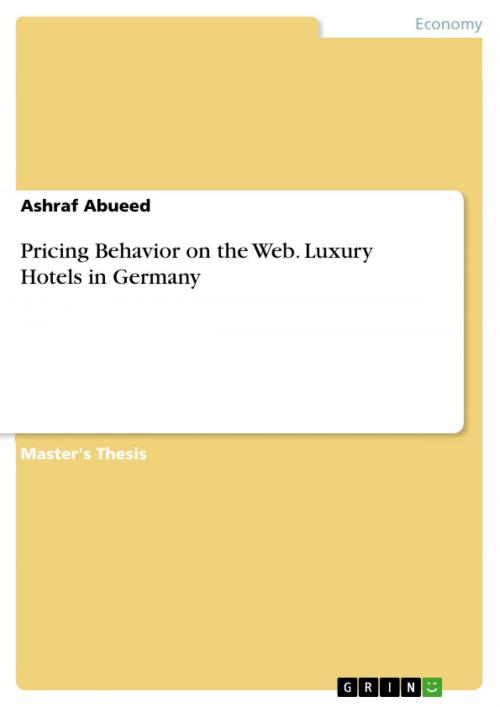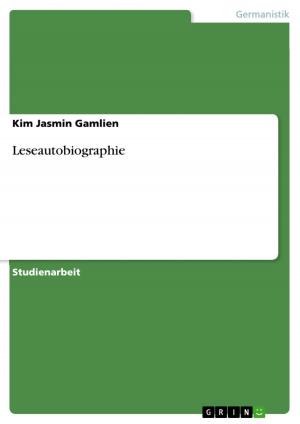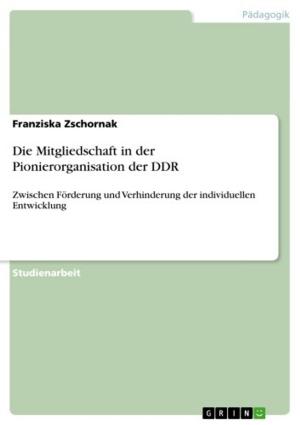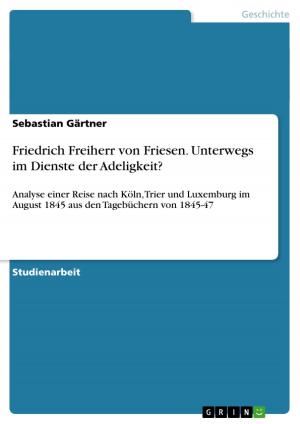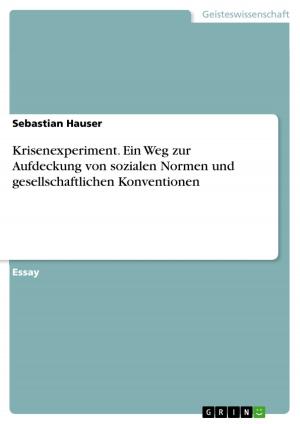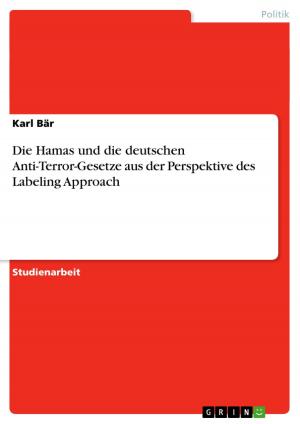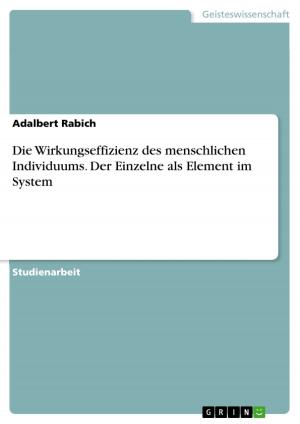Pricing Behavior on the Web. Luxury Hotels in Germany
Business & Finance, Industries & Professions, Hospitality, Tourism & Travel| Author: | Ashraf Abueed | ISBN: | 9783668079342 |
| Publisher: | GRIN Verlag | Publication: | November 3, 2015 |
| Imprint: | GRIN Verlag | Language: | English |
| Author: | Ashraf Abueed |
| ISBN: | 9783668079342 |
| Publisher: | GRIN Verlag |
| Publication: | November 3, 2015 |
| Imprint: | GRIN Verlag |
| Language: | English |
Master's Thesis from the year 2014 in the subject Tourism, grade: 1,3, Munich University of Applied Sciences, course: Hospitality Management, language: English, abstract: The prominence of the web as a distribution channel for hotel rooms as well as its transparency and ease for price comparison create a need for the hoteliers to think strategically in terms of rate setting and pricing practices on numerous web-based distribution channels. The overarching purpose of this exploratory study is to inves-tigate the current online pricing practices of luxury hotels in Germany and to explore potential challenges that they face in distributing their rooms on the web. The data covering 29 hotels in the top 4 primary cities in Germany was collected from 11 B2C, web-based distribution channels over a 26-day period at 6 separate points in time leading up to predetermined arrival date. These channels, including the hotels' own websites along with 10 indirect channels, represent various types of operation. The data were analyzed by means of descriptive statistics. Personal interviews with the regional director of revenue management and the regional web & e-commerce executive of an international hotel company were conducted to support the findings and to gain supplemental insights into the relevant issues. Key findings of this study were that a complete rate consistency did not exist across the utilized channels, and that a customer who surfs the web for a particular hotel may find better rates and conditions than those offered by the hotels' own websites, which negates the best-rate guarantee that is claimed by many hotels. The reselling of net rates to the end-customer on the web was identified as a crucial challenge faced by the hoteliers, which leads to the loss of a hotel's control over pricing. Furthermore, the findings suggest that in many instances, the hoteliers neither applied logical pricing practices nor ensured an adequate presence on the web. Logical pricing practices aim to optimize revenue, while ensuring customer satisfaction. This paper is meant to be a starting point for hoteliers who are interesting in better understanding the power of online pricing and its impact on hotel profitability, and to reevaluate their prices and presence across the various web-based distribution channels. Shifting away from complex revenue management systems, this study outlines some recommendations that could be useful for hoteliers in their effort to maximize their revenues and profit, while keeping the focus on the customer as a focal point.
Master's Thesis from the year 2014 in the subject Tourism, grade: 1,3, Munich University of Applied Sciences, course: Hospitality Management, language: English, abstract: The prominence of the web as a distribution channel for hotel rooms as well as its transparency and ease for price comparison create a need for the hoteliers to think strategically in terms of rate setting and pricing practices on numerous web-based distribution channels. The overarching purpose of this exploratory study is to inves-tigate the current online pricing practices of luxury hotels in Germany and to explore potential challenges that they face in distributing their rooms on the web. The data covering 29 hotels in the top 4 primary cities in Germany was collected from 11 B2C, web-based distribution channels over a 26-day period at 6 separate points in time leading up to predetermined arrival date. These channels, including the hotels' own websites along with 10 indirect channels, represent various types of operation. The data were analyzed by means of descriptive statistics. Personal interviews with the regional director of revenue management and the regional web & e-commerce executive of an international hotel company were conducted to support the findings and to gain supplemental insights into the relevant issues. Key findings of this study were that a complete rate consistency did not exist across the utilized channels, and that a customer who surfs the web for a particular hotel may find better rates and conditions than those offered by the hotels' own websites, which negates the best-rate guarantee that is claimed by many hotels. The reselling of net rates to the end-customer on the web was identified as a crucial challenge faced by the hoteliers, which leads to the loss of a hotel's control over pricing. Furthermore, the findings suggest that in many instances, the hoteliers neither applied logical pricing practices nor ensured an adequate presence on the web. Logical pricing practices aim to optimize revenue, while ensuring customer satisfaction. This paper is meant to be a starting point for hoteliers who are interesting in better understanding the power of online pricing and its impact on hotel profitability, and to reevaluate their prices and presence across the various web-based distribution channels. Shifting away from complex revenue management systems, this study outlines some recommendations that could be useful for hoteliers in their effort to maximize their revenues and profit, while keeping the focus on the customer as a focal point.
